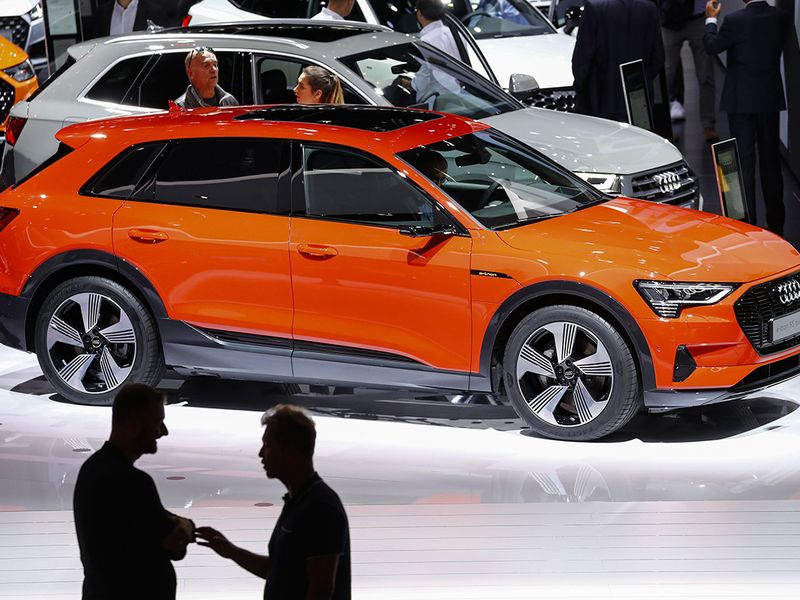
Volkswagen Group plans to roll out its first fleet of self-driving test cars in Hefei, an eastern Chinese city that’s emerging as a hot spot for the nation’s electric vehicle ambitions.
Ten Audi E-trons, VW’s premium electric crossover model, will be deployed in the city’s Haiheng district in a community that’s home to about 400,000 people and about 50 miles of roads with intelligent vehicle-friendly infrastructure. Residents will be able to hail one of the Audis using a VW app.
“This is our first-ever pilot project in China” that seeks to link the automotive, electrical and digital worlds to the benefit of consumers, Volkswagen China Executive Vice President Weiming Soh said. The trial, dubbed Project Tiger, may be replicated in other cities although there isn’t any specific timetable, he said.
The venerable German group is doubling down on a market that’s struggling to revive from a coronavirus-induced slump. Electric vehicle sales in Europe exceeded Chinese EV sales in the first half for the first time since 2015.
China is nevertheless a critical, albeit increasingly crowded, market for the development of autonomous-driving technology. Its scores of new autonomous-vehicle developers include the Renault-Nissan-Mitsubishi Alliance-backed WeRide. Some of the nation’s biggest names in tech, including Baidu Inc., also are pushing into the space.
Government relations
Hefei, in Anhui province, has also been positioning itself as the place for new-age automakers to be. Chinese EV manufacturer Nio Inc. got a $1 billion investment from the city in April, while VW is seeking a 50 percent stake in Anhui Jianghuai Automobile Group Holdings Ltd. and an interest in battery maker Guoxuan High Tech. Nio also has a factory in Hefei, which it operates with Jianghuai.
Jianghuai’s listed unit, JAC Motor, is VW’s smallest partner in China. It has bigger collaborations in the country with SAIC Motor Corp. and China FAW Group Co.
VW selected Hefei due to its already close relationship with JAC and the city’s commitment to new driver technologies, Soh said.
“We are very close with the Hefei government. They have the desire to do this and we jumped in,” he said. “Imagine if you want to build cars, you’re going to need a lot of suppliers, and that creates employment and so on. If we pick it as our base, we’re starting to do that.”
Along with the test fleet, VW announced five planks to underpin the project: self-driving system, battery-electrified vehicle, fleet operations, mobility platform and services, and content.